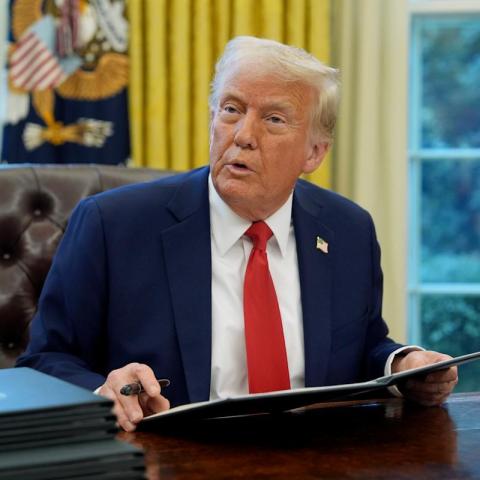Donald Trump recently criticized the Supreme Court after they halted his plans to deport Venezuelan immigrants. He argued that America can’t provide a trial for everyone, a fundamental right guaranteed by the Constitution.
The situation arose when the American Civil Liberties Union of Texas stepped in. They alerted the Supreme Court, claiming Trump’s administration was preparing to deport Venezuelan immigrants without allowing them a fair chance to appeal their removals. This concern is significant since many deportations were happening under the Alien Enemies Act, a controversial law originally used during World War II.
In the past, Trump ordered the deportation of many Venezuelans, sending some to a notorious prison in El Salvador without sufficient legal process. His administration argues that they can deem certain immigrants as gang members and terrorists without due process.
The Supreme Court, controlled by a conservative majority, ruled that the Trump administration must inform detained immigrants under the Alien Enemies Act about their potential deportation. They emphasized the need for these immigrants to have a fair opportunity to contest their removals. However, the ACLU warns that the administration often gives detainees less than 24 hours to react, with some already on buses heading for the airport.
After the lower courts declined to intervene, the Supreme Court issued an order to pause the deportations until further notice. They requested Trump’s solicitor general to respond to the ACLU’s claims.
In response to the court’s decision, Trump expressed frustration. He feels that he’s only doing his job of removing criminals from the U.S. but claims the courts hinder this effort. He mentioned on social media that providing due process to every immigrant would take an excessive amount of time, suggesting it could take over 200 years to process all the cases.
Historically, the Alien Enemies Act has been a contentious law. It justified the internment of Japanese Americans during World War II. Today, its use continues to spark debates about justice and safety.
Interestingly, as Trump navigates these legal waters, his praises for the Supreme Court justices have dwindled. During his presidency, he was quick to thank them for their earlier rulings that benefited him. Yet now, as they demand basic due process rights for immigrants, he seems to have shifted his stance.
This ongoing legal battle highlights the delicate balance between national security and individual rights. It also puts a spotlight on how political landscapes can change quickly, especially in the context of the current administration’s immigration policies.
Source link
Constitution,deportations,Donald Trump,el salvador,Immigration,Supreme Court,venezuela



















:max_bytes(150000):strip_icc()/jay-z-021425-f2037a149ef44c46997a7070b46b2d25.jpg?w=480&resize=480,480&ssl=1)


